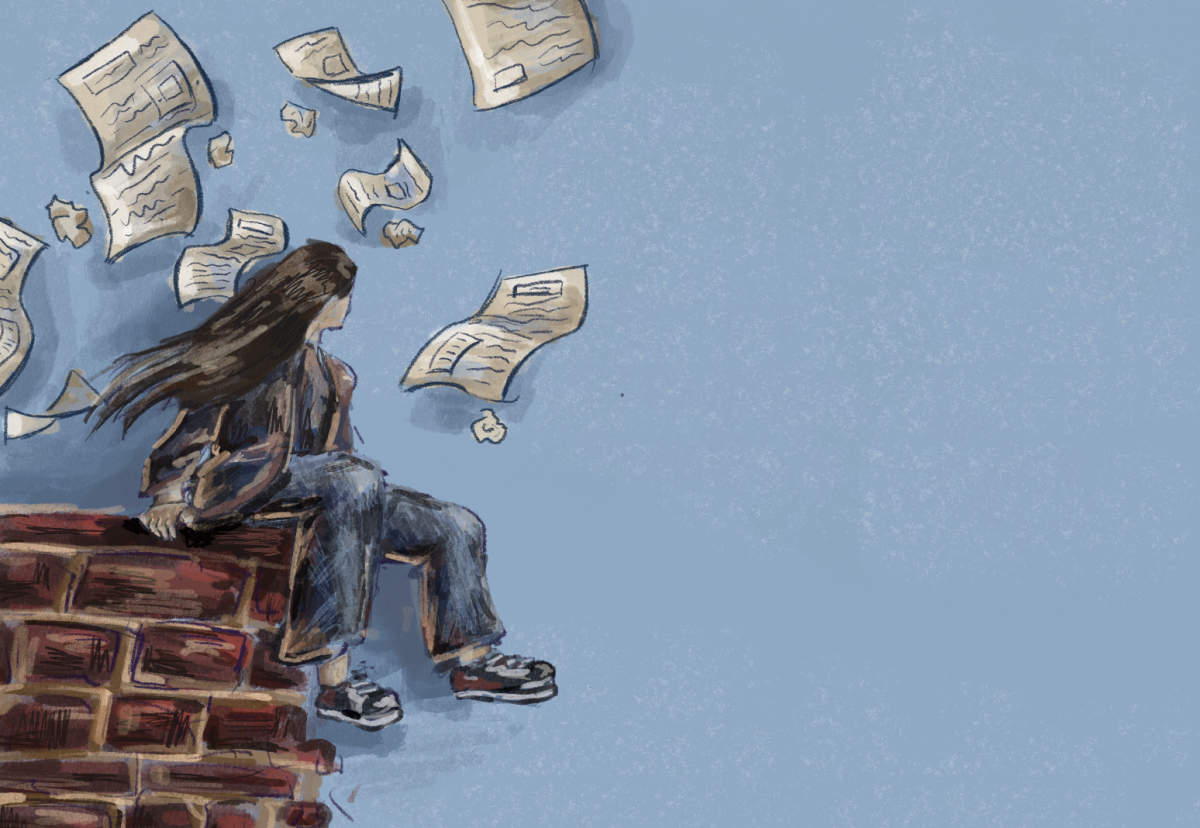Violence. Misinformation. Polarization. Trust is slipping away from nearly every institution meant to hold our country together. This election cycle showed us just how deeply the erosion of trust has gone: as millions tuned into national debates, President Elect Donald Trump spun lies left and right in real-time and Vice President Kamala Harris backtracked on promises she made mere weeks before. Meanwhile, those seeking truth found it nearly impossible to separate fact from agenda, facing a flood of biased media, echo chambers and fake news headlines that blur reality.
For those of us who were too young to vote in the recent election, it is tempting to dismiss the current polarization as the norm. After all, our earliest memories of politics are of a climate far from ordinary—the 2016 election. The first debates most remember are the fiery tradeoffs between Trump and Hillary Clinton in 2016, a year that was labeled as “unprecedented” for its chaotic and shockingly disrespectful rhetoric.
In 2020 alone, political polarization rose sky-high, from America’s highly criticized COVID-19 response to Black Lives Matter protests and racial reform to the Jan. 6 insurrection. Social media has only amplified and worsened the chaos.
It’s no wonder we consider chaos a baseline. Our country’s divide has deepened long before we cast our ballots. Ignoring the chaos of politics will not protect us. It will simply leave our generation unprepared for the challenges we will inherit. Most of Jefferson’s population cannot vote, but we can still make a difference.
Now, more than ever, we need to listen closely—not just to politicians, but to each other. We must be skeptical of the narratives being pushed and question our sources. There are a few things teenagers can do.
Don’t rely on social media for news. While these platforms were initially created to unite us, they have instead resulted in a battlefield of aggressive language and blame, thrusting us into a world where we are too afraid to disagree.
Engage in healthy debate. Disagreement isn’t the enemy, and retreating from a conversation at the sign of one is not the solution—disagreement is how we refine our ideas, challenge false narratives and build bridges across divisions. Stagnation, caused by constant agreement, echo chambers, or lack of active conversation, can breed narrow perspectives and unchecked misinformation, becoming more dangerous for us. Have conversations with people you disagree with, but do it in a healthy manner. Understand the issues that plague the nation and understand why people believe in different policies from your own. Everyone lives a different life. Don’t forget that.
Trust yourself and others. We may not be able to trust every media outlet or politician’s statement, but we must trust each other to engage in honest, critical dialogue—whether it be in alignment or disagreement. This is how we reclaim truth in an age of misinformation. This is how we challenge the narratives that threaten to divide us and ensure we don’t lose sight of what truly matters. In a world where our trust in media, politicians, and search engines is eroding, it’s time we revitalize real conversation. It may be the last tool we have to restore the trust we’ve lost.
All hope is not lost.

